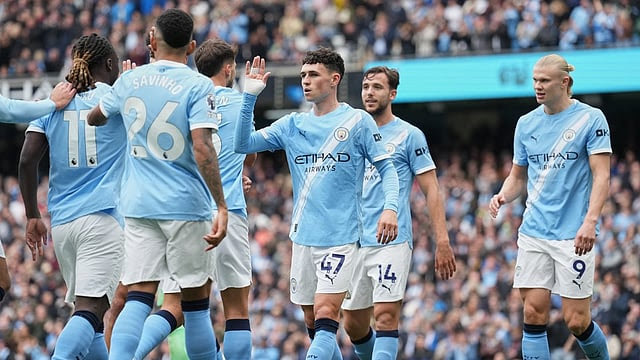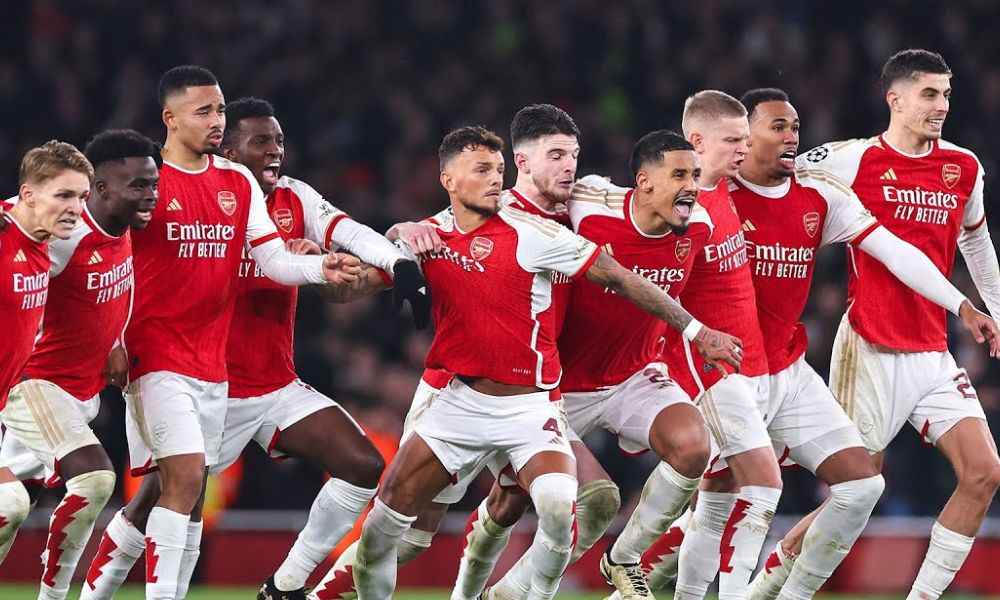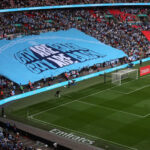What a player , i habe never coach such plyer befire, the man of the mat match award should be given to him, he is the best in the potch tiday , we won because of him

Manchester City against Burnley on a late September evening at the Etihad was never going to be just another Premier League fixture. For Pep Guardiola’s men, it was another chance to flex their muscles, to remind the rest of England that they remain the most powerful force in the land. For Burnley, it was a chance to break an almost cursed record, a chance to dream, even if only for ninety minutes, of rewriting history against a side that has tormented them for decades.
The Etihad Stadium glowed brightly under the lights, and the crowd was buzzing long before kick-off. News had already filtered in from across town that Manchester United had lost 3-1 at home to Brentford. The City faithful, sensing blood, sang loudly in joy at their rivals’ misery. Ruben Amorim, the United manager under huge pressure, was mocked with chants echoing around the stadium. But soon, all eyes turned to the green field. This was City’s night.
Pep Guardiola named a strong line-up. Gianluigi Donnarumma stood tall in goal, with Ruben Dias, Josko Gvardiol, and other trusted defenders shielding him. In midfield, Matheus Nunes, Tijjani Reijnders, and others brought balance and creativity. The attacking line was pure fire: Jeremy Doku’s pace, Phil Foden’s brilliance, and of course, the giant Erling Haaland lurking with menace. On the bench, there was still plenty of quality—Stones, Bernardo Silva, Oscar Bobb—ready to make an impact if needed.
Burnley, meanwhile, arrived with little but hope. Winless at the Etihad since 1963, and having lost 13 games in a row to City across all competitions, the Clarets were walking into the lion’s den. Their manager knew the task was Herculean. But football is a game of belief, and for the travelling Burnley fans who had made the journey, the dream was alive, if only for a while.
The whistle blew, and the game began with Manchester City kicking from left to right. Immediately, their intent was clear. City pressed high, moving the ball quickly, suffocating Burnley with their dominance. Jeremy Doku caused trouble from the left, twisting his marker inside out before cutting the ball into the box. Phil Foden met it and fired from close range. But instead of nestling in the net directly, the shot ricocheted off Burnley defender Maxime Esteve and spun past the helpless keeper. An own goal. City 1-0 up in just the 12th minute.
The Etihad roared. City fans cheered Foden’s effort, Doku’s creation, but also laughed at Burnley’s misfortune. For the Clarets, the nightmare start felt all too familiar. Against City, mistakes are punished ruthlessly—even when they make them against themselves.
Yet Burnley did not crumble immediately. They hung on, trying to keep their shape, waiting for a chance to counter. Their prayers were answered in the 38th minute. Quilindschy Hartman, full of energy down the flank, delivered a dangerous cross into the area. Jaidon Anthony met it, shooting low. The ball deflected off Ruben Dias, changing direction and deceiving Donnarumma. Suddenly, it was 1-1.
The Burnley fans erupted in disbelief. For the first time in a long while, they had struck against the mighty City at the Etihad. Guardiola’s men, stunned for a moment, looked around at each other. This wasn’t supposed to happen
The referee blew for half-time after three minutes of added time. Burnley walked into the dressing room with hope. City walked in with questions. The score was level, and though the favourites had dominated possession, they were reminded once again that football always carries surprises.
When the teams returned, City’s energy levels rose. They began to push Burnley back, wave after wave of attack. Haaland, usually the executioner, became the creator in the 61st minute. Gvardiol whipped in a cross from the left, and Haaland smartly knocked it down into the path of Matheus Nunes. Without hesitation, Nunes volleyed it home with precision. City restored their lead: 2-1.
The stadium breathed again. Relief and joy mixed as Nunes celebrated with teammates. Pep clenched his fist on the touchline. This was more like it.
Burnley still refused to roll over. Lyle Foster tried to create moments for them early in the second half, running hard at City’s defence. But Donnarumma and his backline stood strong, shutting down danger whenever it appeared.
Then came the decisive blow. In the 80th minute, City attacked again through Oscar Bobb, the young talent brimming with confidence. He danced into the box and fired towards goal. Burnley’s Maxime Esteve, already guilty of one own goal, stretched desperately to block. Tragedy struck again. The ball clipped him and rolled into the net. Another own goal. City 3-1 up.
The match was over as a contest. The Etihad roared, not just at City’s goals but also at the cruel comedy of Esteve’s night. Two own goals in one game—against Manchester City, it was a death sentence.
From there, City controlled the tempo. Pep even used his bench to rotate, bringing on fresh legs, but the message was clear: job done. Burnley, who had fought bravely at times, were beaten by quality, pressure, and their own mistakes.
When the referee blew the final whistle, City had secured another three points, moving forward confidently in their pursuit of yet another Premier League crown. The stats were brutal: City had now beaten Burnley 14 times in a row across competitions, scoring 49 goals and conceding just three. Burnley’s curse at the Etihad continued, stretching over sixty years without a league victory.
For Guardiola, it was another tick in the box. His team showed resilience by responding after being pegged back. Nunes had proven himself. Doku had been electric. Foden was everywhere. Haaland, even when not scoring, was influential. And Donnarumma, though rarely tested, added calm at the back.
For Burnley, the story was different. Maxime Esteve’s nightmare will be remembered for years. Two own goals at the Etihad is the kind of disaster that defines a player’s career. Yet Burnley fans, though hurting, would remember Anthony’s goal as a rare bright moment, a glimpse of fight against the giants of English football.
The Premier League is unforgiving, and this game was proof. Burnley left with no points, while City marched on like an unstoppable machine. The gulf in class was obvious, yet Burnley’s short spell of resistance showed why football remains the most unpredictable sport in the world.
At full-time, the fans drifted out of the Etihad. City supporters sang loudly, mocking United’s earlier defeat and celebrating their own victory. For them, it was another perfect weekend. Three goals for City, three points on the table, and another reminder that no matter who challenges them, Guardiola’s side remains in command.
And so the story of the night was written: Manchester City 3, Burnley 1. Goals from fortune, brilliance, and mistakes all combined to tell a tale of dominance. For Burnley, heartbreak once again. For City, another night of power under the lights.
But football never ends. Even as the fans celebrated, Guardiola and his men were already thinking ahead, to the next battle, to the next test, to the next chapter in their relentless pursuit of glory.















